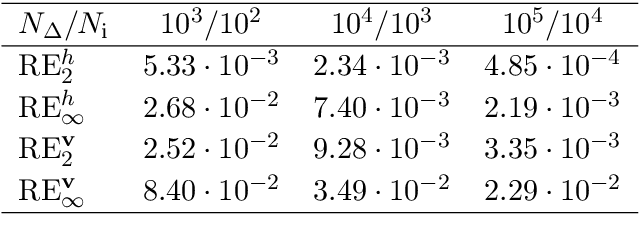Roman O. Popovych
Improving physics-informed DeepONets with hard constraints
Sep 14, 2023Abstract:Current physics-informed (standard or operator) neural networks still rely on accurately learning the initial conditions of the system they are solving. In contrast, standard numerical methods evolve such initial conditions without needing to learn these. In this study, we propose to improve current physics-informed deep learning strategies such that initial conditions do not need to be learned and are represented exactly in the predicted solution. Moreover, this method guarantees that when a DeepONet is applied multiple times to time step a solution, the resulting function is continuous.
Physics-informed neural networks for the shallow-water equations on the sphere
Apr 20, 2021



Abstract:We propose the use of physics-informed neural networks for solving the shallow-water equations on the sphere. Physics-informed neural networks are trained to satisfy the differential equations along with the prescribed initial and boundary data, and thus can be seen as an alternative approach to solving differential equations compared to traditional numerical approaches such as finite difference, finite volume or spectral methods. We discuss the training difficulties of physics-informed neural networks for the shallow-water equations on the sphere and propose a simple multi-model approach to tackle test cases of comparatively long time intervals. We illustrate the abilities of the method by solving the most prominent test cases proposed by Williamson et al. [J. Comput. Phys. 102, 211-224, 1992].
 Add to Chrome
Add to Chrome Add to Firefox
Add to Firefox Add to Edge
Add to Edge